
Find Help
More Items From Ergsy search
-

Sexual Health - HIV Testing
Relevance: 100%
-

How often should someone get tested for HIV?
Relevance: 97%
-
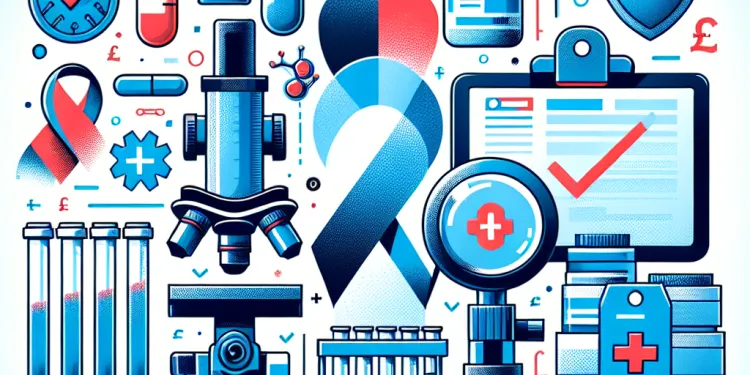
How is HIV diagnosed?
Relevance: 82%
-

What is HIV?
Relevance: 81%
-

What is HIV / AIDS?
Relevance: 78%
-

HIV and pregnancy | NHS
Relevance: 76%
-

Are there vaccines available for HIV?
Relevance: 75%
-

How can HIV be prevented?
Relevance: 74%
-

How is HIV transmitted?
Relevance: 72%
-
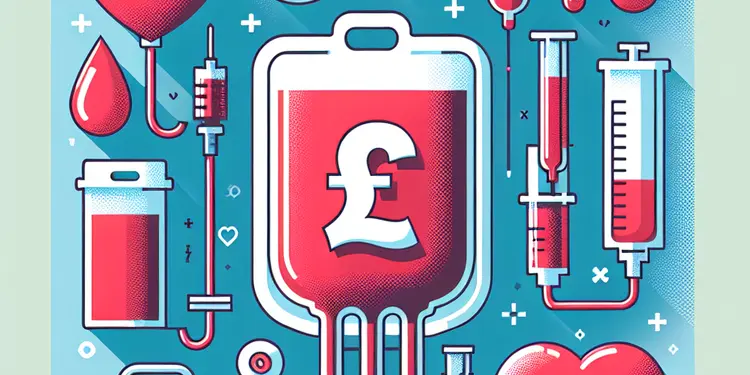
Can HIV be transmitted through blood transfusions?
Relevance: 71%
-

What role does stigma play in the HIV epidemic?
Relevance: 68%
-
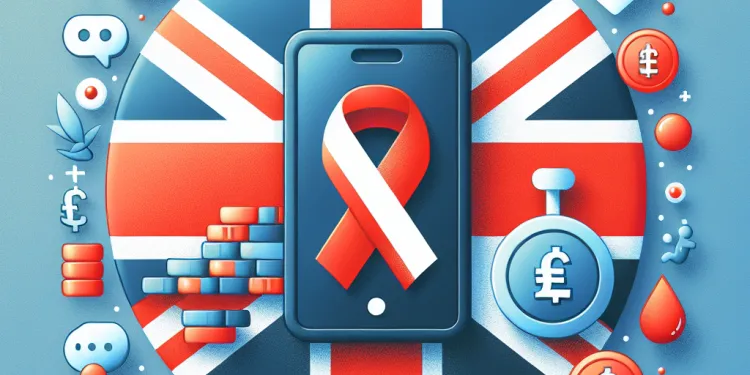
Is HIV only a concern for certain groups of people?
Relevance: 66%
-
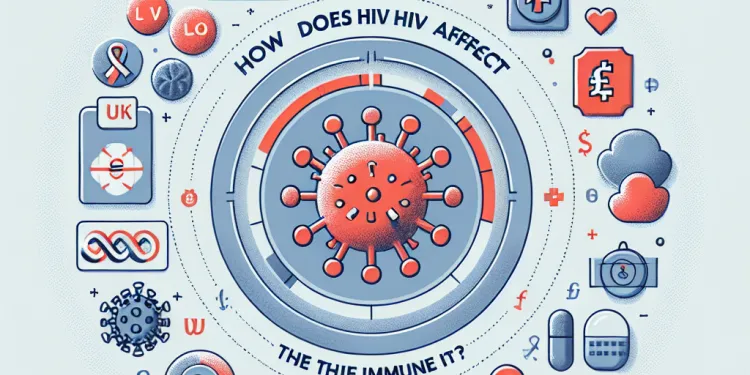
How does HIV affect the immune system?
Relevance: 64%
-

Can people with HIV lead normal lives?
Relevance: 64%
-

HIV - My Story - Florence | NHS
Relevance: 64%
-

What is the difference between HIV and AIDS?
Relevance: 64%
-

Can HIV be transmitted through insect bites?
Relevance: 61%
-
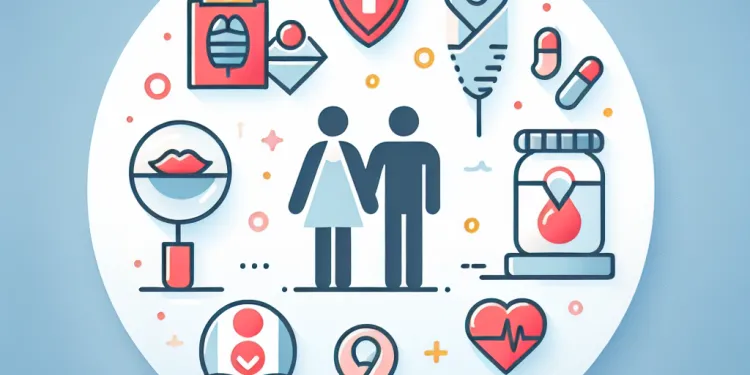
Is it safe for a partner of someone with HIV to have children?
Relevance: 59%
-
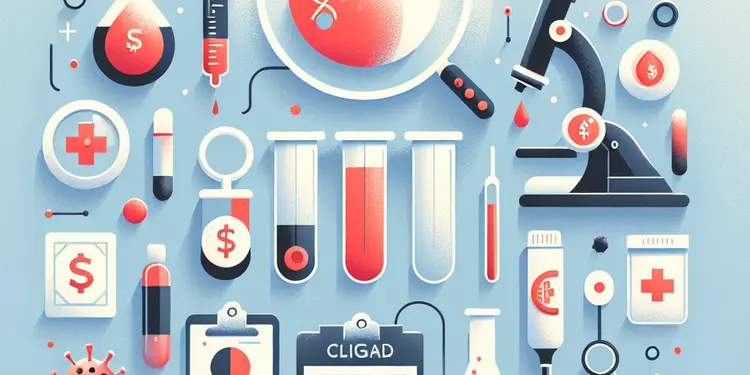
What other viruses are tested for in blood donations?
Relevance: 59%
-
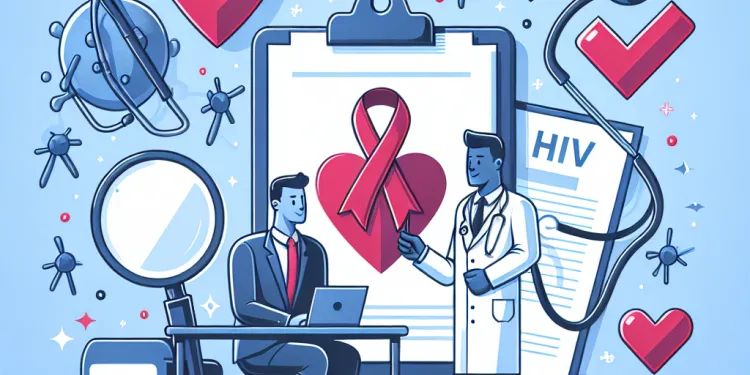
What are the symptoms of HIV?
Relevance: 55%
-
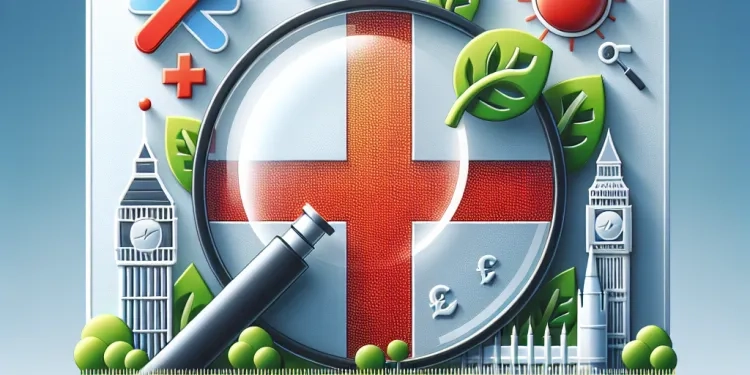
Can HIV be cured?
Relevance: 53%
-
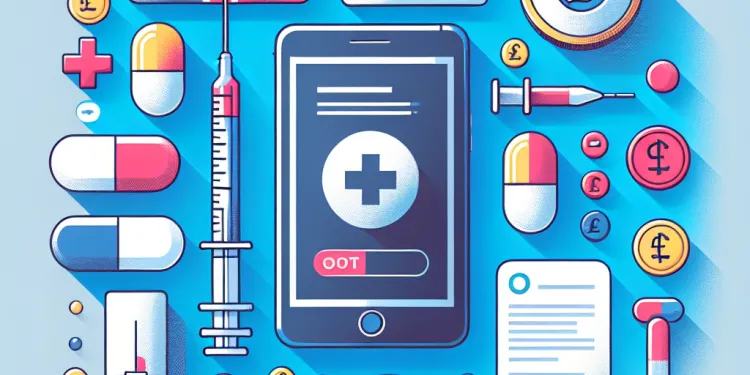
How often should one get tested for gonorrhoea?
Relevance: 51%
-

How often should cholesterol levels be tested when taking heart disease medication?
Relevance: 49%
-

How often should I perform a home colorectal cancer test?
Relevance: 45%
-
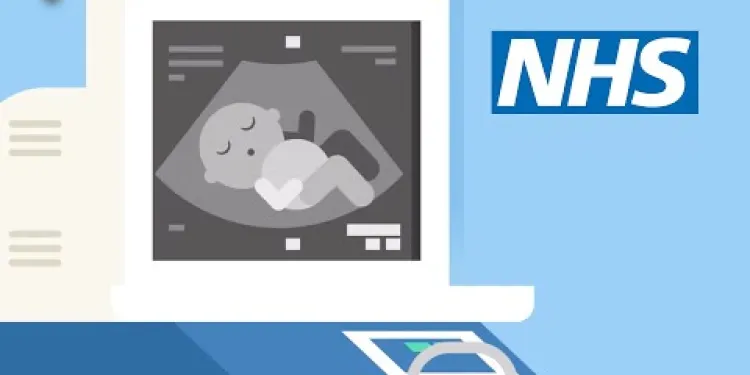
Screening tests for you and your baby | NHS
Relevance: 45%
-

Let's Talk Sexual Health - Home Self Testing Kits
Relevance: 44%
-
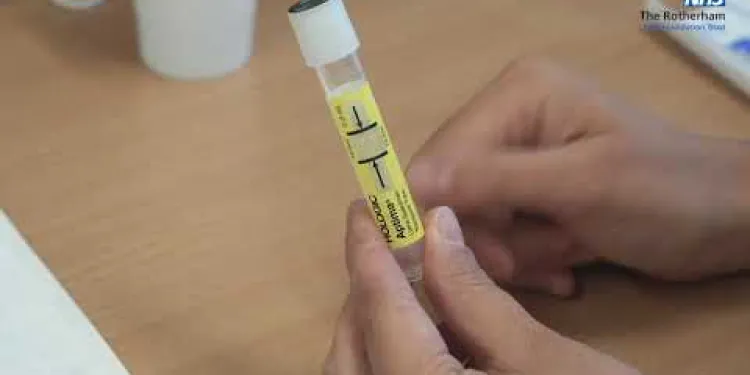
Urine test for Gonorrhoea and Chlamydia
Relevance: 44%
-

What does an undetectable viral load mean?
Relevance: 42%
-
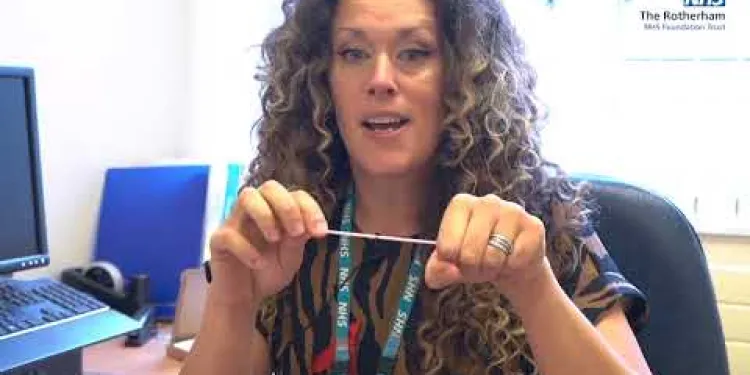
Rectal swab test for Gonorrhoea and Chlamydia
Relevance: 42%
-

Let's Talk Sexual Health - Home Self Testing Kits
Relevance: 42%
-

What is AIDS?
Relevance: 40%
-

What is PSA testing?
Relevance: 40%
-

Having a blood test
Relevance: 40%
-

Is there an autism test?
Relevance: 38%
-

What is a pregnancy test?
Relevance: 37%
-

Is HPV testing available?
Relevance: 37%
-

Are digital pregnancy tests more accurate than non-digital tests?
Relevance: 37%
-

What is a CA-125 test?
Relevance: 37%
-
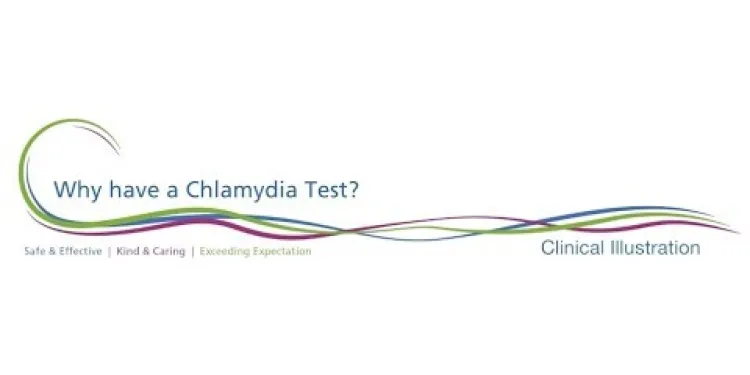
Getting tested for Chlamydia
Relevance: 37%
-
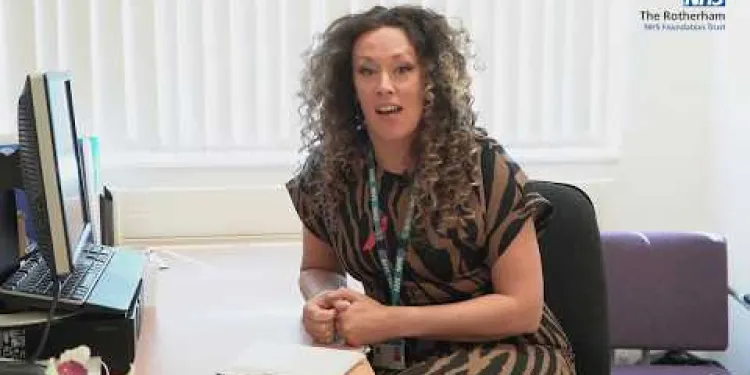
Vaginal Swab test for Gonorrhoea and Chlamydia
Relevance: 36%
Introduction to HIV Testing
HIV testing is a critical component in the early diagnosis and management of HIV, a virus that affects the immune system. Regular testing helps in identifying and treating the virus early, significantly improving health outcomes and preventing transmission. In the UK, understanding how often one should be tested for HIV is essential for effective health management.
General Testing Recommendations
For the general population, it's advised to get tested for HIV at least once. This baseline test helps identify any undiagnosed HIV infection. It's particularly suggested for those who have never been tested or whose status is unknown. Once the baseline test is established, further testing should be based on individual risk factors and lifestyle.
High-Risk Groups
Certain groups are at a higher risk for HIV and should consider more frequent testing. Men who have sex with men (MSM), people who share needles or inject drugs, and those with multiple sexual partners are advised to test more often. In the UK, men who have sex with men are recommended to have an HIV test at least every three months if they are having unprotected sex with new or casual partners.
Pregnant Women
Testing during pregnancy is essential for preventing mother-to-child transmission of HIV. In the UK, it is standard practice to offer all pregnant women an HIV test during their first antenatal visit. If the initial test is negative but the woman continues to be at risk, repeat testing later in the pregnancy may be recommended.
People with New or Multiple Partners
Individuals who have multiple sexual partners or enter into a new relationship should consider getting tested before becoming sexually active with a partner and regularly thereafter. Testing is also advisable when starting a new relationship, to ensure both partners are aware of their HIV status and can take necessary precautions.
Importance of Regular Testing
Regular HIV testing is crucial for maintaining personal and public health. Early detection through regular testing enables timely initiation of antiretroviral therapy (ART), which helps individuals with HIV live longer, healthier lives and reduces the chance of transmission. In the UK, accessing testing is straightforward, with free and confidential tests available through the NHS, sexual health clinics, and various community services.
Conclusion
Deciding how often to test for HIV should be guided by individual risk factors and lifestyle choices. The UK provides robust guidelines and resources to ensure everyone can have access to appropriate testing services. Frequent testing is key in curbing the spread of HIV and ensuring the well-being of both individuals and the community as a whole.
Introduction to HIV Testing
HIV testing is important. It finds the virus early and keeps you healthy. It also stops the virus from spreading. In the UK, knowing when to test is important for staying healthy.
General Testing Recommendations
Everyone should get tested for HIV at least once. This first test checks if you have HIV. It's a good idea if you never had an HIV test before. After the first test, test more if your lifestyle puts you at risk.
High-Risk Groups
Some people are at higher risk for HIV. They should test more often. This includes men who have sex with men, people who inject drugs, and people with many partners. In the UK, men who have sex with men should test every three months if they have new partners.
Pregnant Women
Pregnant women should get an HIV test. It stops the baby from getting HIV. In the UK, all pregnant women are offered a test when they first see the doctor. If they are still at risk, they might need another test later.
People with New or Multiple Partners
If you have new or many partners, get tested before having sex. It's smart to test when starting a new relationship. This way, you and your partner know your HIV status.
Importance of Regular Testing
Regular testing is very important. It helps start treatment early. People with HIV can take medicine to stay healthy. In the UK, testing is easy and free. You can get a test at a clinic or community service.
Conclusion
How often you test for HIV depends on your lifestyle. The UK has good support to help everyone test. Testing often helps stop the spread of HIV and keeps everyone healthy.
Frequently Asked Questions
How often should someone get tested for HIV if they are at high risk?
Individuals at high risk for HIV should get tested at least once a year.
Who is considered at high risk for HIV?
People at high risk include those with multiple sexual partners, people who inject drugs, and men who have sex with men.
How often should someone with a new sexual partner get tested for HIV?
It is advisable to get tested before entering a sexual relationship and then regularly, based on risk.
If I am pregnant, how often should I get tested for HIV?
Pregnant women should be tested early in each pregnancy and possibly during the third trimester.
How often should teenagers be tested for HIV?
Teenagers should be tested if they are sexually active, at least once before the age of 18.
Is it necessary to get tested for HIV if I am in a monogamous relationship?
Testing is recommended at least once to confirm each partner's status at the start of the relationship.
Do I need to test for HIV regularly if I consistently use condoms?
Yes, regular testing is recommended as condoms reduce but do not eliminate the risk.
How often should healthcare workers get tested for HIV?
Healthcare workers should follow standard guidelines but consider testing after potential exposure.
Do people on PrEP need to get tested for HIV regularly?
Yes, people on PrEP should get tested every three months.
How often should someone in a high-prevalence area get tested for HIV?
In high-prevalence areas, testing once or twice a year is advisable.
How frequently should people in the LGBTQ+ community get tested for HIV?
Individuals in the LGBTQ+ community, especially men who have sex with men, should test at least annually.
What is the recommended testing frequency for people living with HIV?
People living with HIV should follow their healthcare provider's advice for regular monitoring, not just testing.
Should tourists get tested for HIV when visiting a country with high infection rates?
Tourists should consider testing if they engage in any high-risk activities during the visit.
How often should people who travel frequently get tested for HIV?
Frequent travelers should consider annual testing or more if they engage in high-risk behaviors.
Do survivors of sexual assault need to get tested for HIV?
Yes, survivors should be tested immediately and follow up at intervals recommended by their healthcare provider.
How often should you get tested for HIV if you had a negative result in the past?
If your risk status changes or you engage in new high-risk behaviors, consider testing every six months to a year.
How regularly should intravenous drug users get tested for HIV?
Intravenous drug users should get tested at least once a year, if not more frequently.
Is it necessary to get tested for HIV after every potential exposure?
Yes, testing is recommended after every potential high-risk exposure.
Should university students get tested for HIV, and how often?
University students who are sexually active should get tested once during their studies and regularly based on risk.
How often should married couples get tested for HIV?
Married couples should get tested at least once and consider retesting if any risk behaviors occur.
How often should you get an HIV test if you are at high risk?
If you might get HIV easily, get tested a lot.
A doctor or nurse can help you know how often to test.
It might be every 3 months.
Use calendars or phone reminders to help remember.
People who might get HIV should have a test every year.
Who can get HIV more easily?
Some people have a higher chance of getting HIV. Let's look at who these people are.
- People who share needles.
- People who have unprotected sex.
- People with many partners.
- People who have another disease you can catch during sex.
If you think you might be at risk, talk to a doctor. They can help you stay safe. There are medicines and other tools that can help keep you healthy.
Some people might have a bigger chance of getting sick. This includes people who have many different boyfriends or girlfriends, people who use needles to take drugs, and men who have boyfriends.
How often should someone with a new sexual partner get tested for HIV?
If you have a new boyfriend or girlfriend, it's a good idea to get tested for HIV. HIV is a virus that can make you very sick. Testing helps to catch it early. Here's how often you should get tested:
- Before you start having sex with a new partner.
- Every time you have a new partner.
It is important to stay healthy and safe. You can talk to a doctor or nurse for more advice. You can also use simple tools like a calendar or set reminders on your phone to help you remember when to get tested.
It's a good idea to get a health check before starting a romantic relationship. After that, keep getting checked regularly, depending on your activities.
If I am pregnant, how often should I get tested for HIV?
When you are going to have a baby, you should talk to your doctor about HIV testing.
Your doctor can tell you when and how often you need to do the test.
It is important to get tested to keep you and your baby healthy.
If you find any words hard to understand, you can ask someone to explain them to you.
Pregnant women need to have tests early in their pregnancy. They might need tests later too, when the baby is nearly ready to be born.
How often should teenagers have an HIV test?
Teenagers should get an HIV test at least once. If they do things that might spread HIV, like having sex without a condom or sharing needles, they should get tested more often.
Support tools like reminders or calendar alerts can help remember when to get tested. Talking to a doctor or nurse can also help. They can give good advice on when to get tested.
If teenagers are having sex, they should get tested. They should do this at least one time before they turn 18 years old.
Do I need to take an HIV test if I have one partner?
If you have only one partner, you might still need to take an HIV test. Here are some reasons why:
- Before having only one partner, you or your partner may have had other partners.
- You may not know if your partner has been tested for HIV.
Talking to a doctor can help. They can tell you if you should take an HIV test.
Using a calendar or setting reminders can help you remember to test regularly if needed.
You should both get tested at the start of your relationship. This helps you know if you have any health problems.
Should I get an HIV test if I always use condoms?
Even if you always use condoms, it's a good idea to get an HIV test. Condoms work well, but they are not perfect. Regular testing can help keep you and your partner safe. If you need help understanding, ask a doctor or a nurse. They can explain it to you.
Yes, it is good to get tested often. Condoms help but do not stop all risk.
How many times should doctors and nurses take an HIV test?
Doctors and nurses should talk to their boss or a health expert. They can share how often to take an HIV test. It's important to stay safe.
If you are a healthcare worker, you can:
- Ask your workplace for guidance.
- Use reminder notes to remember when to test.
- Talk to a friend if you have questions.
Doctors and nurses should follow the usual safety rules. If they think they might have come into contact with a sick person, they should get tested.
Do people who take PrEP need to get tested for HIV often?
If you take PrEP, you should still have regular check-ups. This means seeing your doctor often to make sure you stay healthy.
PrEP is medicine that helps prevent HIV. It is important to get tested for HIV to ensure the medicine is working well.
Your doctor will help you know how often to do these tests. This is so you can be safe and healthy.
You might find it useful to set reminders or use a calendar to remember your doctor visits and tests.
People taking PrEP need to see the doctor every 3 months for a test. This helps keep them healthy.
How often should you get an HIV test if lots of people around you have it?
If you live where many people have HIV, it is good to get tested often. This helps keep you healthy. You might want to get tested every 6 months.
If you are unsure, ask a doctor or nurse. They can tell you more.
You can use reminders on your phone to help you remember when to get tested. Or, you might write it on a calendar.
In places where lots of people get sick, it is a good idea to take a test once or twice every year.
How often should LGBTQ+ people get tested for HIV?
It is good for LGBTQ+ people to get tested for HIV.
You should think about getting tested:
- At least once a year.
- More often if you have different partners.
- If you are unsure, ask a doctor.
These tips can help you:
- Use a calendar to remember when to test.
- Talk to a doctor about testing.
- Use online reminders or apps to keep track.
People in the LGBTQ+ community, especially men who have sex with men, should get tested at least once a year.
How often should people with HIV get tested?
People with HIV need regular check-ups. Here is how often: - **After starting treatment:** Go every few months. - **When treatment is stable:** Go twice a year. - **If you feel sick or have new problems:** Go right away. You can use a calendar or phone reminders to remember appointments. Ask a friend or family member for help if you need it.If you have HIV, you should listen to your doctor. They will tell you when to go for check-ups and tests.
Should people visiting countries with lots of HIV get a health test?
People visiting places where many have HIV might think about getting a health test.
HIV is a virus that can make you sick. A test can help you know if you have it.
If you are not sure about getting a test, you can talk to a doctor or a nurse. They can help you understand more.
You can also use tools like health websites, or ask a trusted friend or family member for advice.
Visitors should think about getting tested if they do anything risky while on their trip.
How often should people who travel a lot get tested for HIV?
If you travel a lot, it's good to get an HIV test. This helps you stay healthy.
Ask your doctor how often you should take the test. They will help you make a plan that is right for you.
If you like, use a calendar or set reminders on your phone. This helps you remember to take the test on time.
If you travel a lot, it's a good idea to get a check-up every year. Get checked more often if you do things that might not be safe.
Should people who have been hurt in a sexual way get checked for HIV?
If someone has been hurt in a sexual way, it is important to see a doctor. The doctor can help check if they are healthy. One thing to check for is HIV, which is a virus that makes you sick.
Here are some things that can help:
- Talk to a doctor or nurse. They can give good advice and help with tests.
- Ask someone you trust to go with you to the doctor. It can be a friend or family member.
- Use pictures or drawings to understand more about being healthy.
- Write down questions you have before going to the doctor.
Remember, doctors and nurses are there to help you. Getting checked can keep you safe and healthy.
Yes, people who have survived should get tested right away. They should also have more tests later, as their doctor says.
How often should you get tested for HIV after a negative test result?
If you had an HIV test before and the result was negative, it's important to know when to get tested again.
Here’s what you can do:
- If you think you were at risk or are worried, talk to a doctor or nurse. They can help you decide when to test again.
- Some people might need to test once a year. Others might need to test every three months.
- If you have new partners or changes in your health, it’s good to check in with a doctor.
Remember:
- Using a calendar or reminders on your phone can help you remember when to get tested.
- Keep learning about HIV to stay healthy and safe.
If your risk level changes or you do new things that might be risky, think about getting tested every 6 months to a year.
How often should people who use needles for drugs get checked for HIV?
If you use needles for drugs, it's important to stay healthy. You should get a test for HIV often.
What is HIV?
HIV is a virus. It can make you very sick if you don't get treatment.
How often is "often"?
Try to get checked every year. If you think you are at more risk, get tested more often.
Helpful tools:
- Ask a doctor or nurse about testing.
- Use a calendar to remember your test dates.
- Ask someone you trust to help remind you.
People who use drugs with needles should see a doctor and get a test every year or more often.
Do I need to get an HIV test every time I might have been exposed?
Yes, it's good to get tested after you might have been in a risky situation.
Should students at university get tested for HIV, and how often?
It is good for students to get tested for HIV. HIV is a virus that can make you very sick. Knowing if you have it helps you stay healthy.
Students should think about getting tested at least once. If they do things that might spread HIV, like having new partners, they should get tested more often.
To help remember, students can use phone reminders or ask doctors when they should come back for another test.
Students in college who have sex should get tested for health. It's good to do this at least once while at school and more often if they have more risk.
How often should married couples get tested for HIV?
HIV is a virus that can make you very sick. It is important to be safe and healthy.
Married couples should talk to their doctor about getting tested for HIV.
Here are some things to do:
- Visit the doctor together and ask about getting tested for HIV.
- Get tested when you first get married.
- Get tested if one of you has a new partner or might be at risk.
- Talk to the doctor about how often you should get tested.
Using a calendar or setting a reminder on your phone can help you remember when to get tested.
People who are married should get a health test at least one time. If they do things that might put them at risk, they should think about getting tested again.
Useful Links
This website offers general information and is not a substitute for professional advice.
Always seek guidance from qualified professionals.
If you have any medical concerns or need urgent help, contact a healthcare professional or emergency services immediately.
Some of this content was generated with AI assistance. We’ve done our best to keep it accurate, helpful, and human-friendly.
- Ergsy carfully checks the information in the videos we provide here.
- Videos shown by Youtube after a video has completed, have NOT been reviewed by ERGSY.
- To view, click the arrow in centre of video.
- Most of the videos you find here will have subtitles and/or closed captions available.
- You may need to turn these on, and choose your preferred language.
- Go to the video you'd like to watch.
- If closed captions (CC) are available, settings will be visible on the bottom right of the video player.
- To turn on Captions, click settings .
- To turn off Captions, click settings again.
More Items From Ergsy search
-

Sexual Health - HIV Testing
Relevance: 100%
-

How often should someone get tested for HIV?
Relevance: 97%
-

How is HIV diagnosed?
Relevance: 82%
-

What is HIV?
Relevance: 81%
-

What is HIV / AIDS?
Relevance: 78%
-

HIV and pregnancy | NHS
Relevance: 76%
-

Are there vaccines available for HIV?
Relevance: 75%
-

How can HIV be prevented?
Relevance: 74%
-

How is HIV transmitted?
Relevance: 72%
-

Can HIV be transmitted through blood transfusions?
Relevance: 71%
-

What role does stigma play in the HIV epidemic?
Relevance: 68%
-

Is HIV only a concern for certain groups of people?
Relevance: 66%
-

How does HIV affect the immune system?
Relevance: 64%
-

Can people with HIV lead normal lives?
Relevance: 64%
-

HIV - My Story - Florence | NHS
Relevance: 64%
-

What is the difference between HIV and AIDS?
Relevance: 64%
-

Can HIV be transmitted through insect bites?
Relevance: 61%
-

Is it safe for a partner of someone with HIV to have children?
Relevance: 59%
-

What other viruses are tested for in blood donations?
Relevance: 59%
-

What are the symptoms of HIV?
Relevance: 55%
-

Can HIV be cured?
Relevance: 53%
-

How often should one get tested for gonorrhoea?
Relevance: 51%
-

How often should cholesterol levels be tested when taking heart disease medication?
Relevance: 49%
-

How often should I perform a home colorectal cancer test?
Relevance: 45%
-

Screening tests for you and your baby | NHS
Relevance: 45%
-

Let's Talk Sexual Health - Home Self Testing Kits
Relevance: 44%
-

Urine test for Gonorrhoea and Chlamydia
Relevance: 44%
-

What does an undetectable viral load mean?
Relevance: 42%
-

Rectal swab test for Gonorrhoea and Chlamydia
Relevance: 42%
-

Let's Talk Sexual Health - Home Self Testing Kits
Relevance: 42%
-

What is AIDS?
Relevance: 40%
-

What is PSA testing?
Relevance: 40%
-

Having a blood test
Relevance: 40%
-

Is there an autism test?
Relevance: 38%
-

What is a pregnancy test?
Relevance: 37%
-

Is HPV testing available?
Relevance: 37%
-

Are digital pregnancy tests more accurate than non-digital tests?
Relevance: 37%
-

What is a CA-125 test?
Relevance: 37%
-

Getting tested for Chlamydia
Relevance: 37%
-

Vaginal Swab test for Gonorrhoea and Chlamydia
Relevance: 36%


